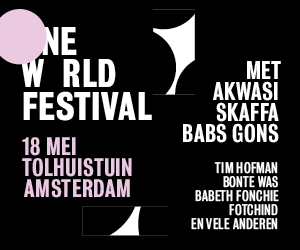Each development organization in any part of the world is registered and approved by a government, says Philip Kpakiwa. They are all partners to a government, but also form corporation with donors.
How can aid be made to foster development? This question has always been posed and there seems to be broad consensus that the new approach to aid should be underpinned by four principles:
1. Being selective in choosing aid recipients.
2. Designing aid activities with the participation of potential beneficiaries and implementing them in partnership with other development organizations.
3. Strengthening the capacity of recipients, whether central or local government, private enterprises or development organizations (NGOs) charged with implementing programs.
4. And restructuring aid delivery mechanisms to make recipients responsible for development, while recognizing the interest of donors that resources be used effectively and efficiently.
Relationship with the government
Each and every business, development, or philanthropic organization in any part of the world is registered and approved by a government, so development organizations are all partners to a government, and they form corporation with donors, so they are not in any case against or opposed to one another. Government capacity is key to development, where governments are unable or unwilling to identify broad goals, adopt appropriate policies, implement processes and programs, evaluate their operation in transparent, predictable and accountable manner, it is unlikely that they will be able to manage their economies or aid effectively. But with all this nitty-gritty, organizations and the states in which they operate must have understanding relationship between one another, or else you pack off.
Does the Dutch government have a duty to help other countries? My answer is ‘’YES’’. With the international community’s endorsement of the international Millennium Development Goals for 2015, consensus seems to be emerging that aid should be targeted to poverty reduction and the Netherlands is part of international community. So therefore, the Dutch government has a duty to complement or honour the phenomenon and despite, it is an act of philanthropy.
In the case of financial aid, donors will need to decide how the concept of partnership translates into decisions on aid allocations, and might need to consider adopting a code of conduct for their dealings with the fragile democracies in developing countries, to ensure that civil society and development organizations are fully involved in aid programs and processes. Aid and its accompanying reforms have not been well marketed in many societies, as a result, recipient countries have a limited understanding of what aid and its reforms intend to achieve and how they intend to achieve it. So if the Dutch government wishes to send the money to either side will do so. But I hope they must have learned a lot from my analysis lest that the money end up in government’s officials pockets.
Should organizations receive money or other support? That’s quite positive, even individuals receive money, providing training for the organization’s staff and beneficiaries about how to best manage the resources of the organization, will be an excellent idea.
To conclude I would recommend aid to pass through development organizations to beneficiaries because they are closer to those in need than the government.
Philip Yayah Kpakiwa is a native of Sierra Leone currently living and working in Senegal. He is the founder of the Conquerors for Christ Movement Africa and a member of the VoiceOver 2015-network.

